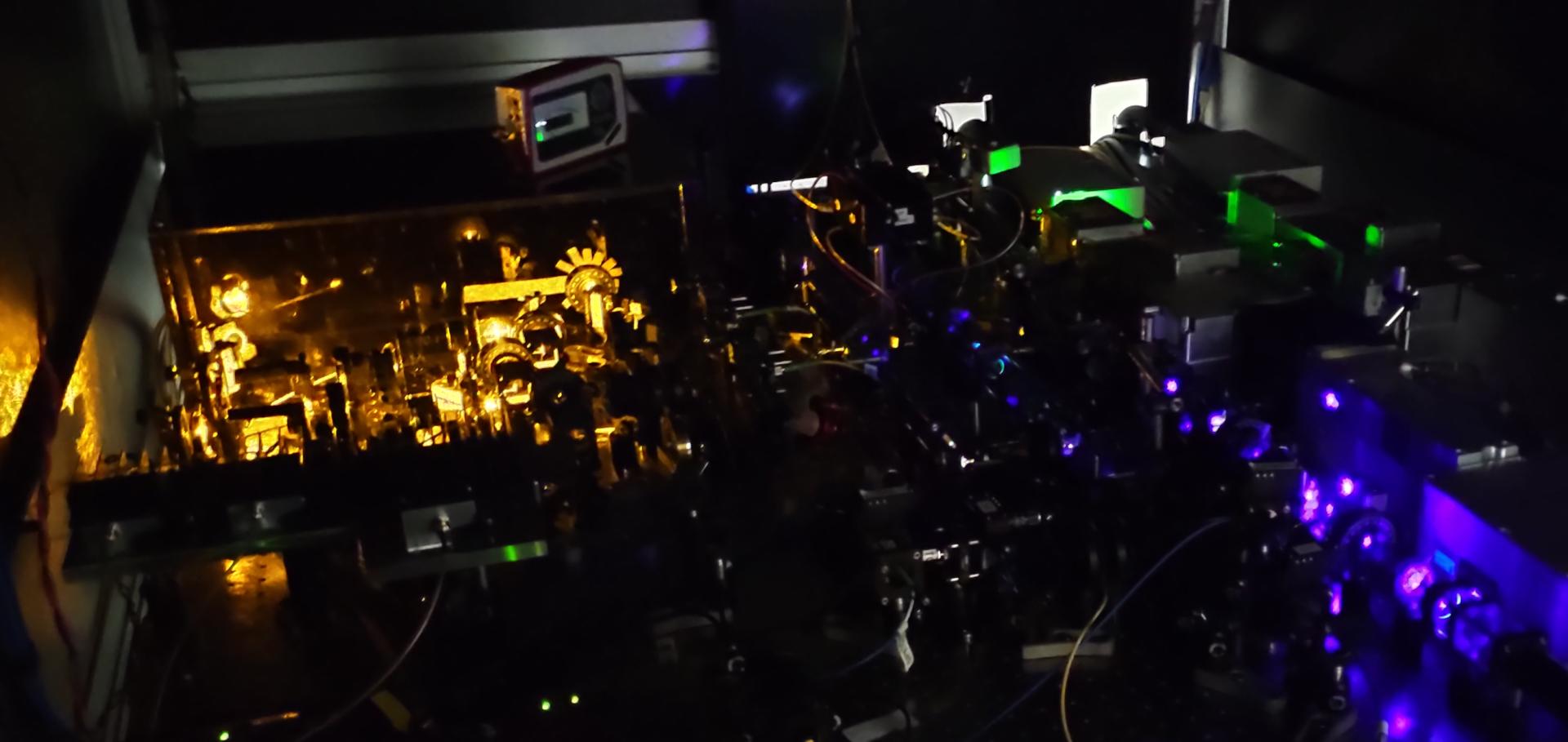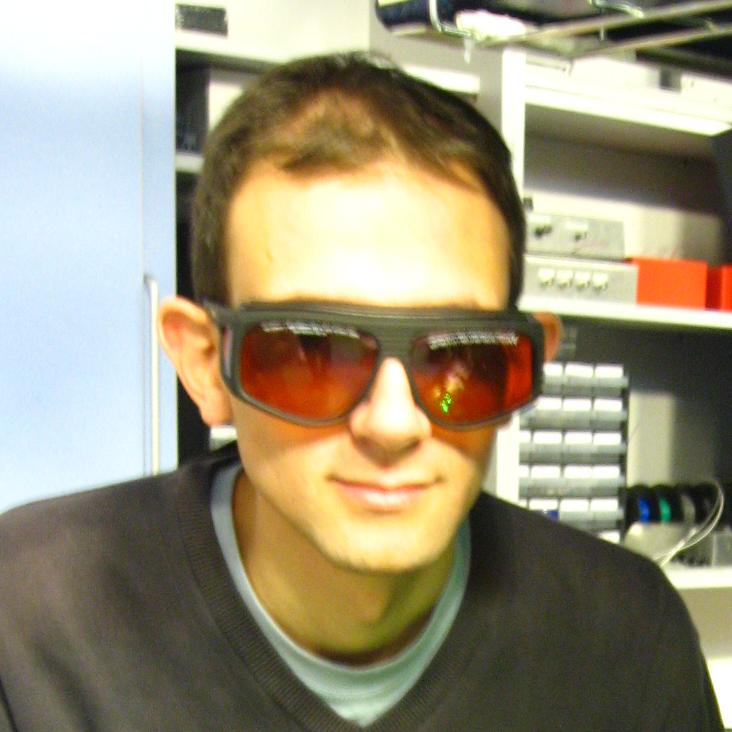Universal Scaling Laws in the Dynamics of a Homogeneous Unitary Bose Gas.
Phys Rev Lett 119:25 (2017) 250404
Abstract:
We study the dynamics of an initially degenerate homogeneous Bose gas after an interaction quench to the unitary regime at a magnetic Feshbach resonance. As the cloud decays and heats, it exhibits a crossover from degenerate- to thermal-gas behavior, both of which are characterized by universal scaling laws linking the particle-loss rate to the total atom number N. In the degenerate and thermal regimes, the per-particle loss rate is ∝N^{2/3} and N^{26/9}, respectively. The crossover occurs at a universal kinetic energy per particle and at a universal time after the quench, in units of energy and time set by the gas density. By slowly sweeping the magnetic field away from the resonance and creating a mixture of atoms and molecules, we also map out the dynamics of correlations in the unitary gas, which display a universal temporal scaling with the gas density, and reach a steady state while the gas is still degenerate.Quantum Depletion of a Homogeneous Bose-Einstein Condensate.
Phys Rev Lett 119:19 (2017) 190404
Abstract:
We measure the quantum depletion of an interacting homogeneous Bose-Einstein condensate and confirm the 70-year-old theory of Bogoliubov. The observed condensate depletion is reversibly tunable by changing the strength of the interparticle interactions. Our atomic homogeneous condensate is produced in an optical-box trap, the interactions are tuned via a magnetic Feshbach resonance, and the condensed fraction is determined by momentum-selective two-photon Bragg scattering.Universal Scaling Laws in the Dynamics of a Homogeneous Unitary Bose Gas
(2017)


